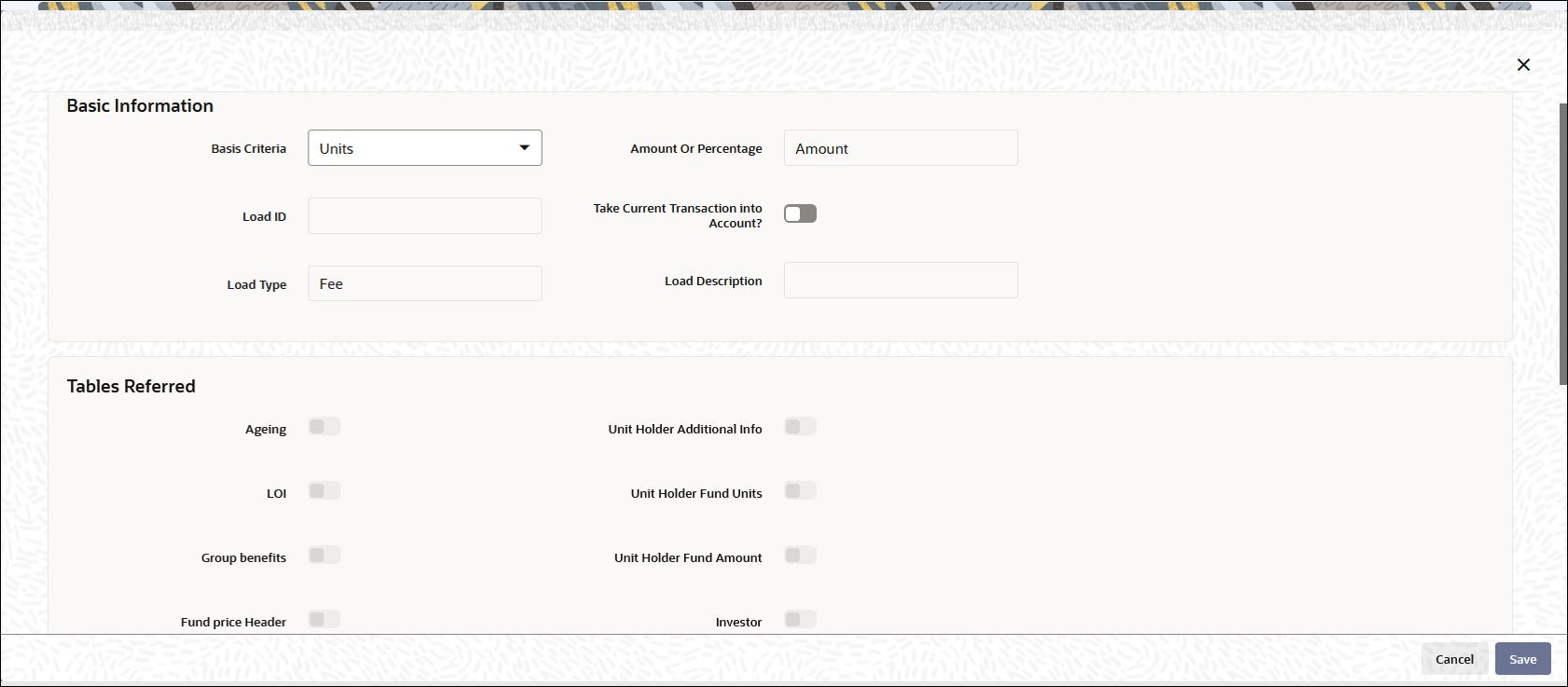7.1.3 Load Maintenance Detail - Basis Button
This topic explains the Basis button of the Load Maintenanace Detail screen.
The basis of application of a load is not restricted only to the following parameters:
- Date
- Period
- Amount
- Units
- Date and Amount
- Date and Units
- Period and Amount
- Period and Units
The following example will make this clear:
Basis definitions are usually defined based on a number of holdings units, or a period of time, in days.
Parent topic: Process Load Maintenance Detail
